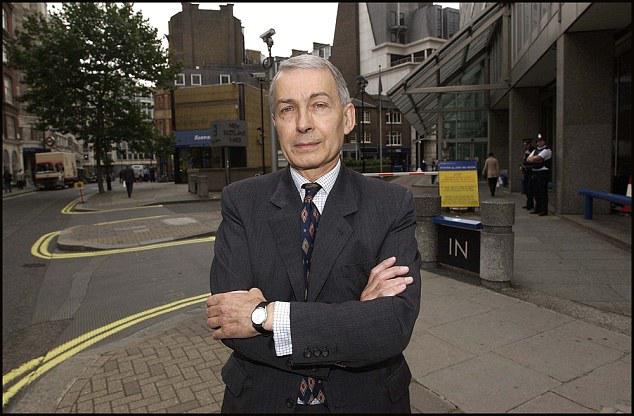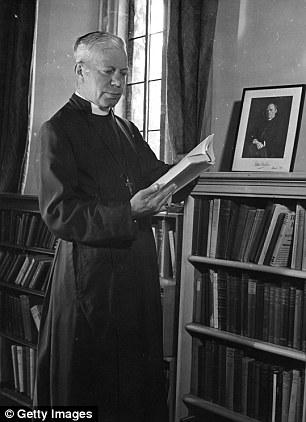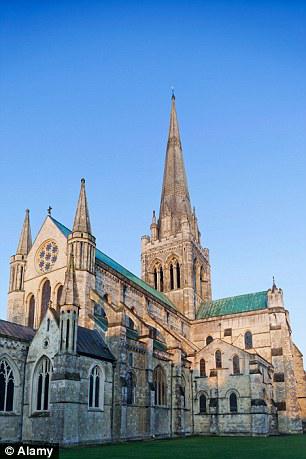|
Church of England 'wrong to smear sex abuse bishop': Group of lawyers, politicians and church leaders say allegation 'cannot be upheld' and question why he was named
By Steve Doughty
A high-powered group of lawyers, politicians and police officers yesterday accused the Church of England of smearing one of its own heroes. They declared that an allegation that former Bishop of Chichester George Bell was a child abuser ‘cannot be upheld’ and called for an inquiry into how the CofE came to make it. The protest, by well-placed figures including Anglican Labour MP Frank Field, leading lawyer Desmond Browne QC, and former police chief Lord Geoffrey Dear, threw the Church into a fresh difficulty over its handling of sex abuse allegations. Last week the Church declared that a number of senior Anglican figures had failed to act on allegations of historic sex abuse of a teenager by a paedophile priest. It declined, however, to publish the report. The scandal over Bishop Bell broke out last autumn, when the cleric, who died in 1958, was labelled a paedophile who had sexually abused a child. A statement from the Church said experts had drawn up an independent report which had found there was no reason to doubt the truth of the complaints of a woman who said she was abused by the Bishop in his kitchen in the late 1940s and early 1950s. The woman, known only as Carol, was paid £15,000 compensation. She has since given a series of broadcast interviews about the alleged abuse. The report was not published and the experts were not named. As a result schools and buildings named after Bell had references to him removed and there are moves to take down a memorial plaque in Chichester cathedral. Bell’s memory is revered because he organised resistance to the Nazis from 1932 onwards, welcomed German refugees to Britain, and during the war made an enemy of Prime Minister Winston Churchill. Bell spoke out early against the British area bombing of German cities and met with German pastors opposed to Hitler to try to secure a promise from Britain that peace would be made with Germany if Hitler was assassinated. His opposition to the government is thought to have cost him the chance of becoming Archbishop of Canterbury. The George Bell Group statement yesterday said that Bell was a figure with a ‘saintly’ reputation who had no-one to defend him. They demanded the Church publish its investigation into Bell and the allegations with redactions to protect the identity of his accuser. They said no-one else has made any allegations against Bell since the Church called him a paedophile last October. The Group said: ‘The public has been consistently assured that the process by which the Church of England reached a view on Bishop Bell was "thorough" and "objective", and that it commissioned "experts" whose "independent reports" found ‘no reason to doubt the veracity of the claims’ of sexual abuse made by the complainant. ‘However, although the nature of this process has never been publicly disclosed, we have discovered enough to establish its severe limitations which render it quite inadequate as a basis for assessing the probability of Bishop Bell’s guilt. The scope of the independent experts’ inquiries was limited to a degree that made a proper analysis of the complainant’s allegations virtually impossible. ‘In view of the evidence that we have gathered and examined we have concluded that the allegation made against Bishop Bell cannot be upheld in terms of actual evidence or historical probability.’ The Group called for an investigation of the way the Church came to denigrate Bishop Bell, and added: ‘On moral, pastoral and legal grounds the authorities of the Church of England clearly owe an apology, principally to the living relatives of Bishop Bell, and also to many people across the churches who have honoured his memory. ‘ It also called for Bishop Bell’s name to be restored to buildings and schools from which it has been removed since last autumn. A Church of England spokesman said: ‘The decision to settle the civil claim relating to the activities of Bishop Bell and make a formal apology was not taken lightly or without consideration of the impact on the reputation of George Bell. ‘However in this case, as in others, the overriding goal was to search out the truth and issues of reputation cannot take priority over that. Any suggestion that the reputation of the Church, or its ministers, should take precedence over the search for the truth is fundamentally misplaced.’
|
.
Any original material on these pages is copyright © BishopAccountability.org 2004. Reproduce freely with attribution.


